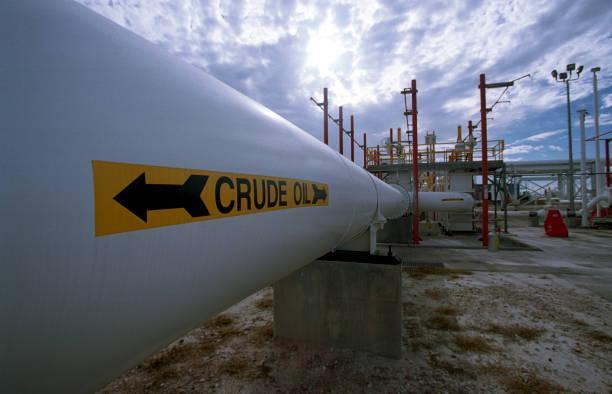
Carney, Alberta Strike Pipeline Deal that Could Boost Energy Firms
In a significant development for Canada’s energy sector, Canadian Prime Minister Mark Carney and Alberta Premier Danielle Smith have reportedly reached a deal supporting a new pipeline to the BC coast. The agreement, which is expected to be formally announced on Thursday, hinges on Alberta accepting stricter industrial carbon pricing and major carbon-capture investment from the Pathways Alliance oilsands group. This deal has the potential to boost major Canadian energy producers and provide a much-needed shot in the arm for the country’s energy industry.
The new pipeline, which would transport oil from Alberta to the BC coast, has been a long-standing priority for the energy sector. The pipeline would provide a vital link between Alberta’s oil fields and global markets, allowing Canadian energy producers to increase exports and compete more effectively with other major oil-producing countries. The deal is seen as a significant breakthrough, as it addresses concerns about the environmental impact of the pipeline while also providing a boost to the energy sector.
At the heart of the deal is Alberta’s agreement to accept stricter industrial carbon pricing. This move is seen as a key concession by the Alberta government, which has historically been resistant to stricter carbon pricing. However, the deal also includes a major investment in carbon-capture technology from the Pathways Alliance oilsands group. This investment is expected to help reduce the carbon footprint of Alberta’s oil industry and provide a more sustainable future for the sector.
The Pathways Alliance is a group of major oil companies, including Canadian Natural Resources, Cenovus Energy, and Imperial Oil, among others. The group has committed to investing in carbon-capture technology and reducing greenhouse gas emissions from their operations. This investment is seen as a critical component of the deal, as it will help to reduce the environmental impact of the pipeline and provide a more sustainable future for the energy sector.
The deal is expected to have a significant impact on major Canadian energy producers. Companies such as Enbridge, TransCanada, and Kinder Morgan are expected to benefit from the new pipeline, as it will provide them with increased access to global markets. The deal is also expected to boost the stock prices of these companies, as investors react to the positive news.
In addition to the benefits for energy producers, the deal is also expected to have a positive impact on the Canadian economy. The pipeline is expected to create thousands of jobs and generate billions of dollars in economic activity. The deal is also seen as a major victory for the Canadian government, which has been working to balance the need for economic growth with the need to reduce greenhouse gas emissions.
The deal is not without its critics, however. Environmental groups have expressed concerns about the impact of the pipeline on local ecosystems and the potential for oil spills. These groups argue that the deal does not go far enough in addressing the environmental concerns surrounding the pipeline and that more needs to be done to reduce greenhouse gas emissions.
Despite these concerns, the deal is seen as a significant step forward for the energy sector. The agreement provides a much-needed boost to the sector, which has been struggling in recent years due to low oil prices and increased competition from other energy sources. The deal also provides a more sustainable future for the sector, as it includes a major investment in carbon-capture technology and stricter industrial carbon pricing.
In conclusion, the deal between Canadian Prime Minister Mark Carney and Alberta Premier Danielle Smith is a significant development for Canada’s energy sector. The agreement provides a much-needed boost to the sector, while also addressing concerns about the environmental impact of the pipeline. The deal is expected to benefit major Canadian energy producers and provide a more sustainable future for the sector. As the energy sector continues to evolve, it will be important to balance the need for economic growth with the need to reduce greenhouse gas emissions.





